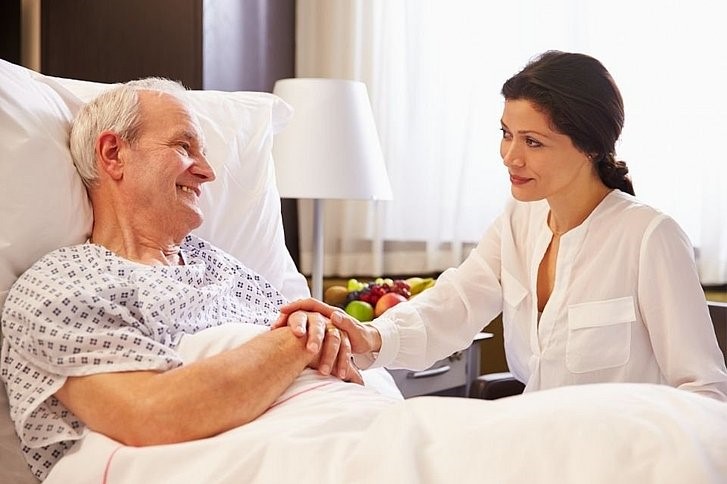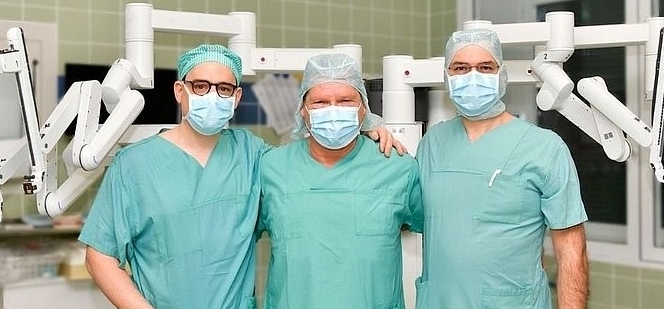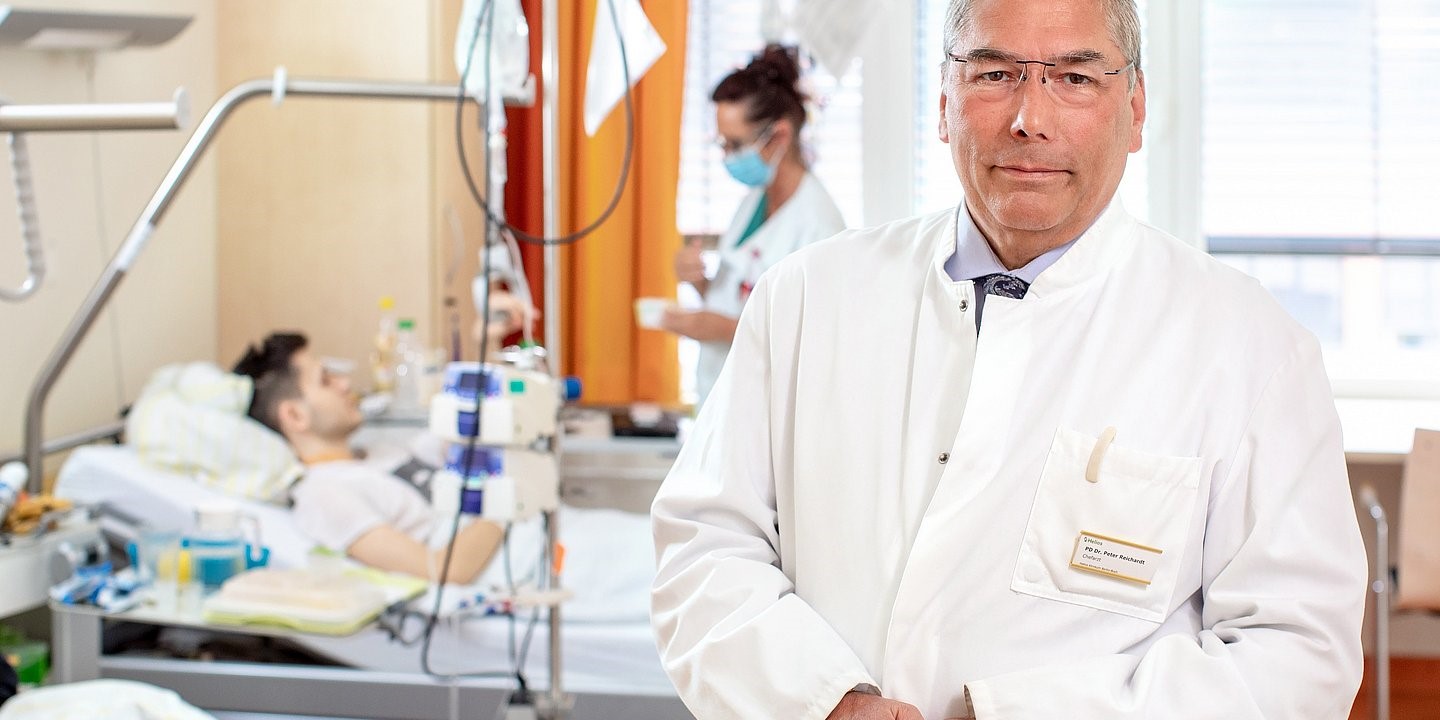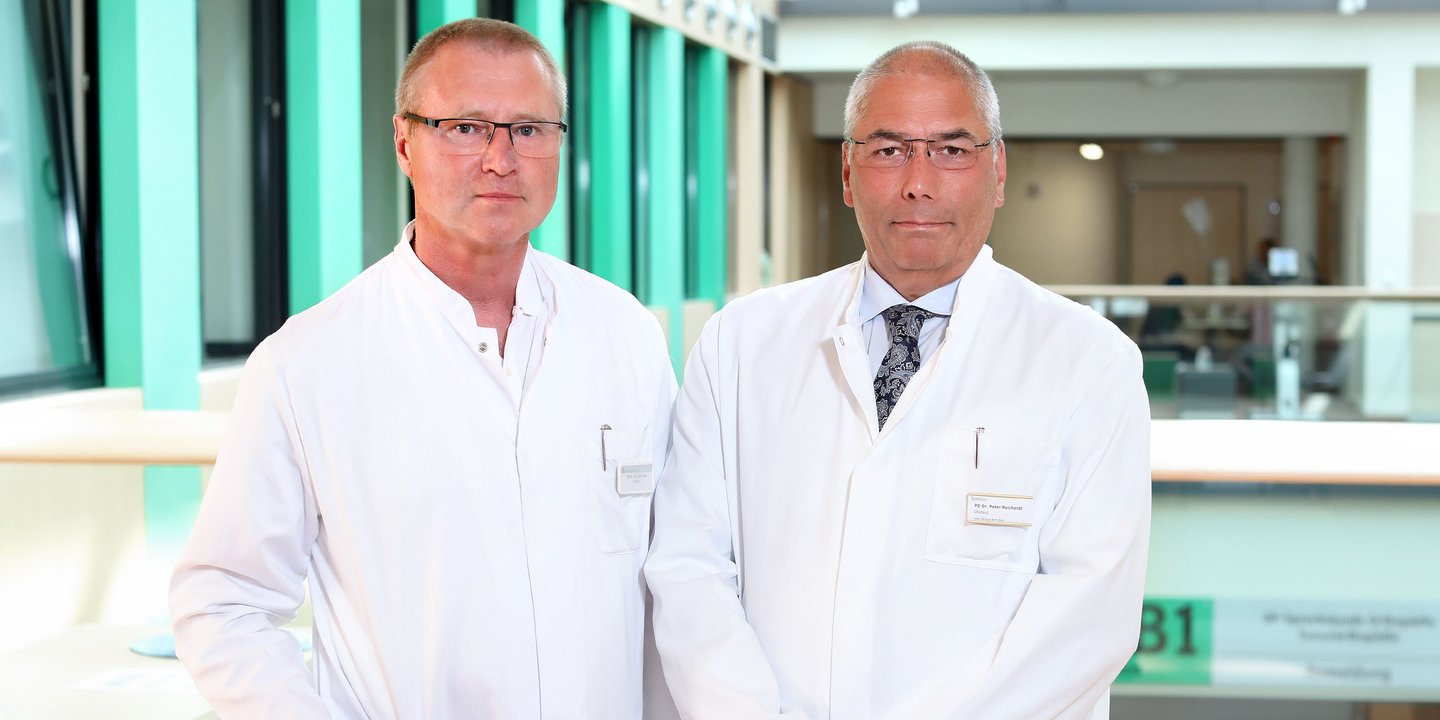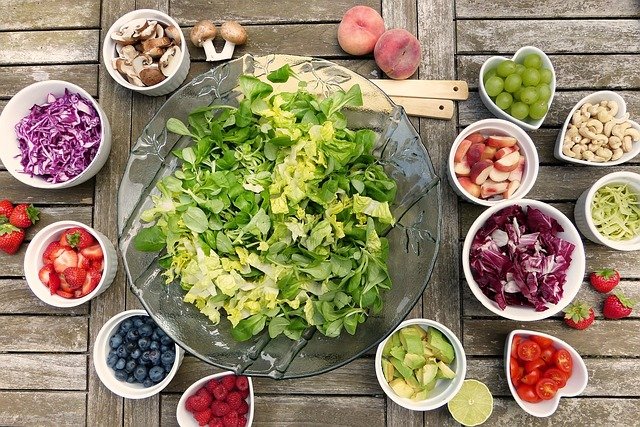
Diet of breast cancer patients should be balanced and healthy
Breast cancer is the most common cancer in women. About 69,000 new cases are reported annually. Almost every patient asks themselves a question of proper nutrition. First of all, this means that one should eat healthy food.
This is why nutrition is very important in breast cancer
Should it be for prophylaxis, treatment of the existing breast cancer or after successful completion of therapy, proper nutrition always plays an important role.
Certain nutritive factors may increase the risk of breast cancer (breast carcinoma). They include, for example, excessive consumption of fatty food, sugar and meat for many years, as well as the consumption of processed food, along with a relatively low portion of fruit and vegetables in the diet.
It is necessary to avoid the food contributing to the development of breast cancer or at least to reduce its consumption. However, dietary therapy alone cannot prevent, delay or cure breast cancer.
Although we cannot influence such risk factors as genetic predisposition, we can consciously influence external risk factors such as nutrition.
Prophylaxis of breast cancer with food
To reduce an individual risk, nutrition should be balanced. Optimal nutrition includes a comprehensive supply of energy, vitamins, minerals and microelements to the body.
The same applies to both breast cancer patients and healthy women: a varied meal that is high in fibre, fresh fruit, vegetables, salads, dairy products and highly digestible meat. The food with a predominant content of carbohydrates and fibre, lean meat and fish should be given preference in the menu. Whole grain bread is preferred over white and brown bread.
It is important that no food alone can prevent breast cancer. In general, the main thing is a healthy and balanced diet. Nevertheless, 'anyone can develop cancer. Even those eating well, doing a lot of sports and leading a healthy lifestyle can get sick. However, other factors such as familial predisposition or accidentally mutated cells cannot be influenced,' says Ms. Behrendt.
This food makes up healthy eating
These foods can be consumed more often:
• Oily fish such as salmon, anchovies, herring, mackerel, tuna;
• Cabbage;
• Spinach;
• Broccoli;
• Pumpkin;
• Sweet potato;
• Tomatoes;
• Legumes;
• Soy products;
• Fruit and vegetables;
• Whole grain products;
• Walnuts;
• Flax seeds;
• Flaxseed and rape oil.
These products increase the risk of breast cancer
Intensively processed products:
Eating highly processed food usually increases the risk of cancer, including breast cancer. This is especially true for postmenopausal breast cancer.
Meat
Two to three times a week, avoid eating it more often. Sausage: even less often. Saturated fats increase the risk. When choosing meat, red meat should also be avoided.
Anyone can get cancer. Even those eating well, doing a lot of sports and leading a healthy lifestyle can get sick. However, other factors such as familial predisposition or accidentally mutated cells cannot be influenced.
Sugar
Sugar itself does not increase the risk of cancer, but it is indirectly involved into the development of many diseases and leads to obesity. It is the third largest risk factor for cancer.
Alcohol
The more it is consumed, the worse the consequences. The type of alcohol does not matter much. If a woman drinks more than one glass, and a man drinks more than two glasses a day, this increases the risk of developing not only breast cancer, but also oral, oesophageal and hepatic cancer.
Healthy eating can support the recovery process
It is also important to keep an optimal diet during breast cancer therapy. 'Food is the basis of treatment and can have a positive influence on the course of disease. In addition, it can improve the chances of recovery and individual state of health, as well as contribute to a better quality of life,' says the nutrition expert.
Diet for breast cancer therapy
Ms. Behrendt recommends eating at regular intervals and consuming meals containing at least 30 g of fibre from whole grains and at least three handfuls of vegetables and two handfuls of fresh fruit. Seasonal fruit and vegetables are preferable. In addition, natural dairy products should be consumed daily, and high-quality oils should also be specially added. Eat sea fish twice a week.
In addition, it is necessary to consume 1.5–2.5 litres of liquid per day, including some non-sugary drinks such as water and tea. Adequate daily physical activity would be a good addition.
Meat and sausages, as well as excessive sugar, should only be consumed in small quantities.
'While receiving treatment, patients should avoid eating poorly digestible foods. It is better to eat small meals throughout the day that do not create additional load on the body,' explains Ms. Behrendt.
Food is the basis of treatment and can have a positive influence on the course of disease. In addition, it can increase the chances of recovery and improve individual state of health, as well as contribute to a better quality of life.
Food that is well tolerated during breast cancer therapy:
• Potato and rice;
• Macaroni;
• Wholemeal bread;
• Yogurt and cottage cheese;
• Nuts and seeds;
• Sprouted grain;
• Lean meat and low-fat sausage products;
• Sea fish;
• Fresh fruit;
• Highly digestible vegetables (carrot, broccoli, young turnip-rooted cabbage, cauliflower, spinach, spinach beet, pumpkin, zucchini, beetroot, lettuce/ salad chicory, etc.).
Food that is poorly tolerated during breast cancer therapy:
• Unripe and sour fruit;
• Fatty and fried food;
• Vegetables that cause flatulence (beans, peas, lentils, etc.,);
• Spicy and smoked food;
• Sweet and fatty pastries;
• Too cold and too hot dishes;
• Alcohol.
Nutrition during breast cancer radiotherapy and chemotherapy
'Before starting chemotherapy or radiation therapy, it is necessary to get the body in shape. This means that special care should be taken to ensure that a patient does not lose weight or strength,' says Ms. Behrendt.
Both chemotherapy and radiation therapy are very exhausting for the body. Therefore, it is important that the patient's digestive system is not exposed to additional load. When undergoing treatment courses, light food is the best choice. Food should be highly digestible. In addition, it is necessary to avoid the food that is too spicy or fatty.
Keeping a vegan or vegetarian diet in breast cancer
In vegans and vegetarians, blood tests can help determine whether they are consuming enough of such essential nutrients as calcium, magnesium, potassium or iron. Possible deficiencies should be identified and compensated.
Nutrition experts such as Ms. Behrendt are exploring the available alternatives to compensate for a deficiency through nutrition. If patients feel sick or are reluctant to eat possible food alternatives, dietary supplements or vitamin injections may be prescribed. The main focus here should be on the optimal supply of the body with nutrients.
Losing weight by dieting in breast cancer
Breast cancer is the type of tumour that usually has a little effect on energy metabolism. If the disease is detected and treated at an early stage, the tumour does not have an effect on weight or metabolism.
'Patients should strive for normal body weight through a balanced diet. However, it is not worth starting a diet during chemotherapy, as this can lead to nutrient and mineral deficiency,' says Ms. Behrendt. 'In this case, a strict diet involving consumption of the same food products has a rather negative effect,' continues the expert.
Many women struggle with overweight after being diagnosed with breast cancer. The exact reasons of this have not yet been sufficiently studied. Some of the patients had already excessive weight; others suspect it is associated with certain therapy options. After the first cancer therapy regimen, overweight patients feel exhausted more often and for a longer time than patients with normal weight. In addition, it is hard to perform breast surgery in obesity patients, and some chemotherapy regimens increase the risk of adverse effects affecting the heart.
Ms. Behrendt recommends leading a healthy lifestyle rather than being on a diet. Sports activities and breast cancer do not exclude each other. In addition, sports activities have a positive effect on the recovery process during treatment. Just 180 minutes of workouts a week will be enough.
Sports activities are equally useful for the mind and the body. Patients feel stronger; their metabolism improves automatically contributing to the weight loss. This also improves self-esteem, which can help to get rid of sleep problems.
Nutritional advice for complaints in breast cancer
The symptoms of nausea or fatigue can also occur in breast cancer. In this case, one should also pay attention to the optimal supply of the body with nutrients.
• Loss of appetite: wine containing pepsin, clear broth, bitter substances, ginger, cinnamon, citrus fruits, fresh fruit puree, yogurt and cottage cheese.
• Diarrhoea: carrot puree, rice and oatmeal/ whorled plantain seeds with warm water, fresh grated apple, salty pastries, black tea, cocoa powder, healing clay, sage, camomile, blueberries.
• Nausea: various types of teas with additives such as camomile, peppermint, lime flowers, ginger, melissa, cumin-anise-fennel, valerian, as well as croutons and salty pastries.
• Constipation: fermented milk products, fresh fruit, fibre content at least 30 g/day, whorled plantain seeds/ ground flax seeds, sauerkraut brine.
• Fatigue: citrus fruit, ginger, fruit/fresh fruit puree, nuts/seeds, avocado, outdoor physical activity, contrast shower.
What should be done with weight loss?
If a patient is losing weight, additional use of drinkable nutritional mixes may be required. They replenish the missing energy and contain important vitamins, minerals and microelements.
If it is not possible to take food through the mouth during therapy, it is given using the port system or percutaneous endoscopic gastrostomy directly into the stomach. The daily diet is selected individually for the patient; special attention is given to possible intolerance.
'There are no special diets that can be used to treat cancer or, in particular, breast cancer. The so-called anti-cancer diets have no proved therapeutic effect,' explains Ms. Behrendt.
The diets that help fighting cancer often lead to malnutrition, because they do not supply enough energy and nutrients to cover the body needs. This can become an additional load for the patient, especially during therapy. 'It is impossible to get rid of a tumour with hunger as some anti-cancer diets promise,' says the expert.
Anti-cancer diets also weaken the patient's body and bring false hopes. If you want to support your recovery process, you should keep a balanced and varied diet.
Breast cancer diet: what to pay attention to after the treatment
'Even after a successful therapy, patients must continue to eat consciously. The same recommendations are given here as for the cancer prevention diet,' says Ms. Behrendt.
Even after breast cancer therapy, she recommends a diet rich in fresh vegetables, fruit and wholegrain products, as well as moderate consumption of meat and fats. Alcohol and cigarettes should be avoided. 'In case of overweight, weight loss is required,' says Ms. Behrendt.
'I advise my patients to take a break. A short nap, conscious enjoyment of favourite food, a calming bath or pleasant massage can provide a nice change and a balm for the soul,' recommends Ms. Behrendt.
Treatment of every patient is always individual
It is important to monitor the patient individually throughout the course of breast cancer therapy. This is achieved through personal talks to patients and their relatives to be able to assess and optimize the current situation. The goal is to ensure an adequate supply of nutrients to the body during and after therapy to facilitate recovery.







